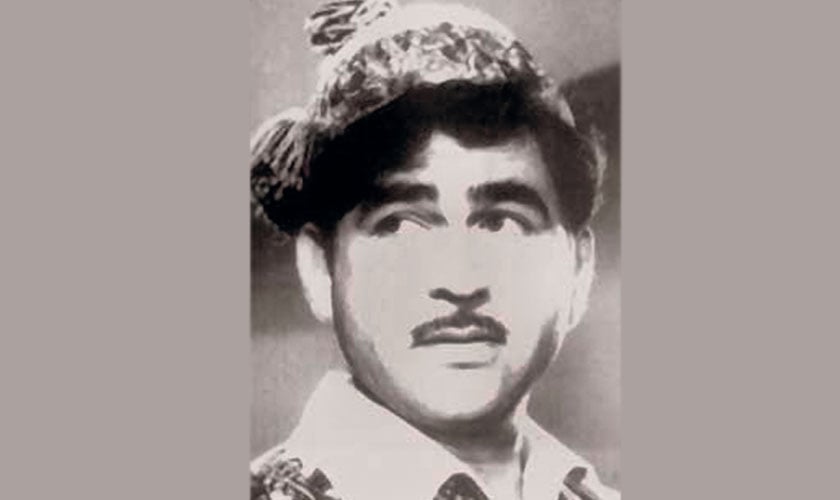It started out as a debate between a Raj Kapoor fan and this scribe. The RK fan wanted to ascertain the fact that Mera Naam Joker was released years before Syed Kamal’s Joker and Pakistan’s film industry was simply not capable of handling such a delicate subject.
InMemory
Looking back at the life and times of the iconic actor-producer.
It started out as a debate between a Raj Kapoor fan and this scribe. The RK fan wanted to ascertain the fact that Mera Naam Joker was released years before Syed Kamal’s Joker and Pakistan’s film industry was simply not capable of handling such a delicate subject.
To some degree it is true that Pakistan was awestruck by Raj Kapoor in its early years. Actor and producer Syed Kamal is a prime example. He started out as a clone of the great Raj in Thandi Sarak (1957) but then proceeded to work relentlessly till the mid sixties and established himself as a huge star.
Experimenting with genres and landing back-to-back hits certainly helped Kamal in shedding the ‘clone’ tag and calling Joker a rip-off is both incorrect and an insult.

The year was 1966 and the film industry in Pakistan was flourishing. Since the 1965 war, a ban was placed on exhibiting Indian films. Pakistani cinema needed new ideas to fill the vacuum. With Waheed Murad, Santosh and Darpan already becoming ‘veterans’ of production, Syed Kamal decided to come up with his maiden venture.
Kamal was working on Fazal Karim Fazli’s Aisa Bhi Hota Hai (ABHH) when he got the idea. “Kamal had heard that Raj Kapoor was planning to make a film, after Sangam, on a Russian circus in which he would essay the part of a joker. Kamal simply used that news to craft a completely different story and called it Joker,” recalls 82-year-old Saeed Fazli from Los Angeles, who was assisting his father during ABHH.
Joker had a powerful cast; Zeba, Rani, Rehan, Azad, Talish and Saqi - all excellent in their capacities. Kamal asked his long-time friend and former journalist Ali Sufyan Afaqi to write dialogues for the story penned by him.
As the story goes, the character ‘Kamal’ was set to be married to Zeba’s character ‘Seemi’, a girl of his father, Azad’s choice. But then Rani enters the story. She comes from a circus and successfully diverts the spoilt brat towards adopting the nomadic lifestyle. Kamal’s wealthy family plans to disinherit him and here is when Rani dumps him. Dejected Kamal clashes with Rani’s lecherous father and everything is burnt to the ground.
The film had an excellent soundtrack by Muslehuddin, where Ahmed Rushdi ruled with ‘Aaj Iss Shehr’. The lyrics, penned by left wing symbolist poet Habib Jalib, made the songs enduring.
Rani was still struggling as an actor and had not yet tasted success in the industry. It was a year later, when Dever Bhabi established her as ‘the’ leading lady. Rehan, the man who snatched Maria from Kamal in the film, had been a star before Rani was born. He had started his career in India before partition and it is rumored that had he stayed back, he would have played Rajan in Mehboob Khan’s Andaz, a role that eventually went to Raj Kapoor.
It was reported in the press that Rani and Kamal became close during the production, but as was depicted in the film, Kamal opted for a women chosen by his family.
The film’s only drawback was its release since it had been in production for quite some time. It was released three weeks before Waheed Murad’s Armaan was set to take the nation by storm. Joker was a moderate success and helped in establishing Kamal as a producer. Not satisfied with the direction of Iqbal Yusuf, Kamal called the shots for his next venture, Shehnai. The movie had another change: Sohail Rana, the man behind the music of Armaan, was now with Kamal.
Raj Kapoor’s Mera Naam Joker (MNJ) was finally released in December 1970, with a great musical score by Shankar-Jaikishan. It was made way ahead of its time and didn’t do too well on the box office. Raj Kapoor had to make Bobby (1973) to cover for the damages done by MNJ.
In the mean time, Kamal had produced many other films, the most famous being Insaan aur Gadha. As is evident from the name, it was a political satire, where a donkey transforms into a human being but after experiencing everyday trauma he finds solace only by transforming back.
There was a difference of approach between the two showmen. Raj Kapoor was a lavish spender, as is evident from the MNJ debacle, while Kamal had a very calculated approach towards production. Raj retired by the mid seventies and passed on the reins to his sons, while Kamal reduced his work after Zia-ul-Haq took over the reins of Pakistan through a martial law in 1977. Siyaasat was Kamal’s final film as a lead in 1986, after his failed attempt in the General Elections of 1985.
Syed Kamal died on October 1, 2009 at the age of 75, but he will live on in memory through his diverse cinematic legacy.